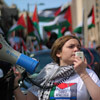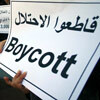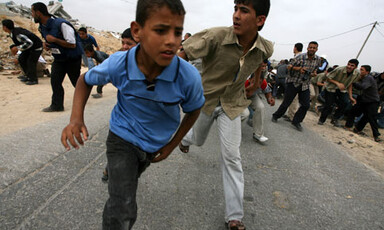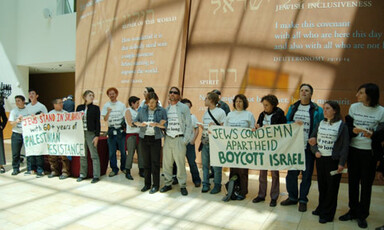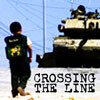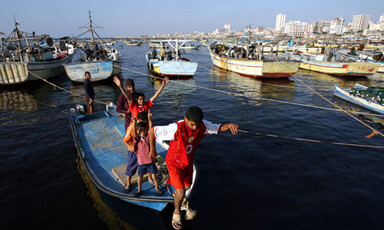
Blue sky, toxic sea
Gaza Strip 9 June 2008
On a massive and wide-ranging scale, every single aspect of life in Gaza is punctuated by the Israeli occupation and the blockade. There are 1.5 million people here, trapped and hermetically sealed, in this 22-mile by 6-mile strip of devastated open-air prison compound. Fuel is scarce and the streets are thick with the soupy smoke of cooking gas, falafel oil and benzene as Israel’s collective punishment policies force people to fill their cars with their families’ gas rations. Nora Barrows-Friedman writes from Gaza. Read more about Blue sky, toxic sea
